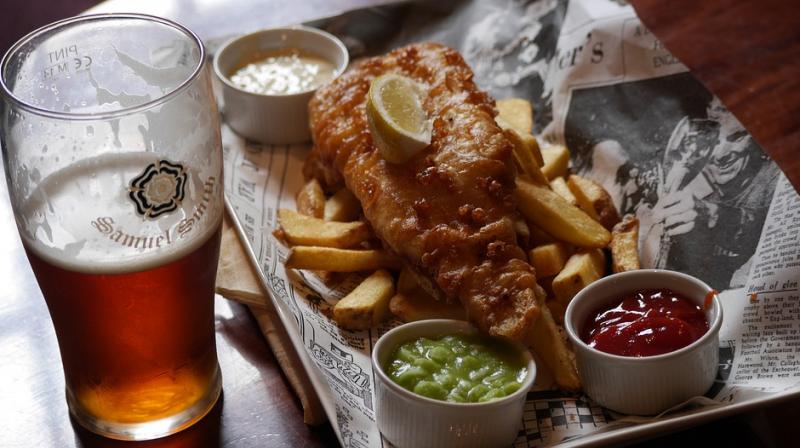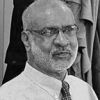The last place to go for dinner...

When you are abroad, the last place you want to go is an Indian embassy dinner. The food is rate contract stuff and you always get an uneasy feeling that somebody is making money, or all the good stuff has been interdicted before it reached the pantry. The quality of food is a uniform third-class. Even the duty-free booze doesn’t make up for bad food for all you usually have on offer is Johnny Walker Red and tetrapack wine and tetrapack orange juice.
I will never forget a particularly memorable reception at our Washington D.C. embassy. They had chips and white bread cheese sandwiches with Joey Gallo wine in gallon jugs, Tropicana orange juice in tetrapack containers served in styrofoam cups and paper plates. It was a plate deal and guests were advised to stay with one paper plate each by handwritten signs on both sides of the plates stack. It’s a prudent thing, but nevertheless a cheap thing to do for an aspiring superpower’s embassy in the most powerful capital in the world.
Not very long ago I went to a dinner reception hosted by an Indian ambassador who had presented his credentials to a bicycle-riding royal in the morning. The cultural item was a Bollywood dance by the daughter of a friend of the ambassador. She danced to canned music from a tinny-sounding boom box. After the cultural item, the ambassador and a ranking foreign ministry official of the host country, who kept his bicycle clips along with his hat on the umbrella rack, treated us to two very boring speeches.
But what I could not get over was the shiny packets of Haldiram bhujiya that were kept in corners as light eats with the liquor. The food was the usual around-the-corner Indian restaurant stuff. But what I couldn’t help noticing were the chilly bhajias served as a main dish. I always thought this was handcart food outside toddy shops in Telangana. I sauntered around a bit, put a Haldiram moong dal packet in my pocket and fled to my hotel. Where I got room service to send up a nice, small, single malt and some fish which were swimming in the bay less than 24 hours earlier.
This kind of dinner is par for the course, except when you are in a city where there is no embassy and just a consulate. I recall a few good occasions with our consuls. Once in St. Petersburg, the Indian consul treated a couple of us to a fine lunch at one of the nicer restaurants overlooking one of the canals. Our consul-general at Shanghai hosted a former FS, a former general, and myself, a former nothing, to a great meal at an Indian restaurant. The CG obviously was a regular customer and the chef went all out to make it a memorable feast. The Indian ambassador in Germany recently hosted a group of us in Frankfurt for the ADB conference to a brilliant lunch in a nice hotel. It probably has something to do with the IFS (B) staffers in embassies who apparently have a weakness for rate contractual arrangements.
In direct contrast to this was a dinner hosted by Kuldip Nayar in 1990 when he was high commissioner in London. The Queen owned the residence and the high commissioner, being a good Indian tenant, was not vacating. But I had a feeling that Her Majesty wanted the tenants out because the upkeep of the place was much to be desired. The loos were wet with splash and one look at it my plumbing mercifully clogged up.
But the food was something. Some dishes were still in their tinfoil casseroles. It was definitely rate contract stuff and a consequence of a well-greased, long-term business relationship. Some of the crockery had seen better days and cutlery was mixed and has just come from under the tap. But worse was the conversation. His deputy, a St. Stephen’s man, was probably longing for his college canteen’s oily cutlet. What was on the table was a Varanasi meal. No booze, not even wines in gallon jars. I narrated the dinner and style to the Prime Minister, who being a minor royal himself had a good laugh and said he was not planning to visit London soon. His government fell sooner than that.
But my big problem with Indian diplomatic dinners is not so much the food as the conversation. Most of them will keep telling you about all the wonderful things they did to retrieve the relationship from the drains where the previous envoy put them. They will tell you about how they buttonholed the host PM or President and placed India in a better perspective. The art of good conversation is near dead among our diplomats. The guys who can talk about bovine colic are still many levels below.
Bad food apart, you have to listen to the empty boasts of ambassadors who are near or past their use-by date. One former ambassador to Washington actually told me that it was he who orchestrated the big and flourishing IT partnership and that it was a construct of Indian diplomacy.
I was left wondering what those Tamil and Telugu-speaking young people in the US, who blazed a new trail in our economic relationship, would have to say about this? I was tempted to ask the ambassador if he also engineered the Y2K crisis that created huge software openings for Indian code writers and programmers? I also wanted to ask him if it was our embassy and missions in the US who got our hi-tech managers jobs in all the big IT services and software companies.
Let’s leave embassies and go to higher places. A good place to eat is at Rashtrapati Bhavan. I have had high tea there with Presidents Narayanan and Abdul Kalam. The bakery items were top class. But the RB banquets, I am told, are the usual contractual stuff, but from Ashoka Hotel, which is also nothing much to write about.
Indian PMs can be good hosts. The food is of a superior quality, though not as mouth-watering as the descriptive official menus make them out to be. Most PMs I have broken bread with were indifferent to food, with the exception of Atal Behari Vajpayee. He loved good food.
Once I was summoned by him to brief him on the performance of PSUs. I worked hard for a couple of days preparing a presentation. When I arrived at 7 RCR, I was promptly ushered into his living room. He started with his characteristic “Kya ho raha hai?” After which we made some small talk. Then he popped the question “Kuch khayenge?” I nodded and he summoned some refreshments, it was just after the breakfast hour. Soon some wonderfully fluffy idlis with two kinds of chutney, kachoris (from Lucknow, he told me) and petha, obviously from Agra, arrived in wonderful bone china. We ate while he extolled the virtues of each item as he insisted I have some more. He was a good host. Then it was washed down with flavourful Darjeeling tea. We had now used up my half hour at the gate of everlasting fame with me being unable to make my presentation. I was ushered out. That lost opportunity still makes my mouth water.

